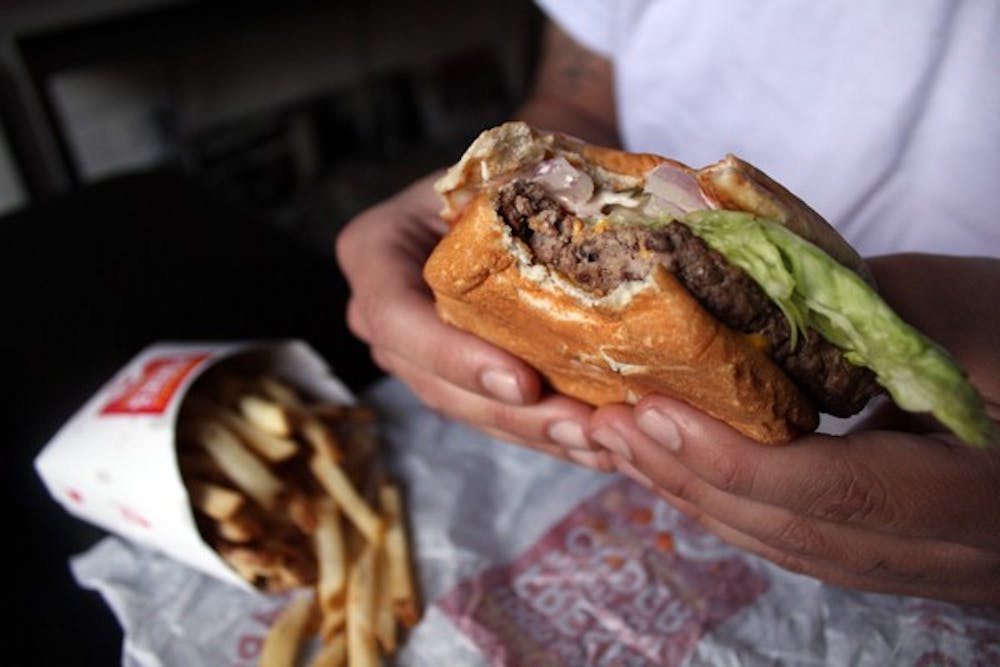Fast food consumption should be limited to one out of every 10 meals, nutrition lecturer Melinda Johnson said.
Johnson said 90 percent of a person’s diet should consist of meals outside of fast food, even though a demanding schedule may make choosing nutritionally balanced meals over fast food more difficult.
McDonald’s, the world’s largest fast food chain, recently released a statement announcing they have discontinued using boneless lean beef additives in their products, as well as the ammonium hydroxide to kill the bacteria in the low-grade meat cuts. But Johnson said there are still trade secrets in the fast food industry consumers may be unaware of.
She said the use of food additives is a way for fast food restaurants to make their products cheaper. Johnson also said food quality practices in the U.S. aren’t always as strict as the U.K., where the same use of lean beef additives and use of ammonium hydroxide are illegal.
“It’s probably a low dose that the FDA approves,” Johnson said. “That’s why it’s legal.”
Nutrition freshman Bettina Miele said she thinks fast food restaurants shouldn’t be allowed to use additives at all.
Miele recommended packing a lunch rather than eating out, or ordering a salad rather than a hamburger for someone who decides to eat fast food.
“If you have time to make a salad really quick — it takes two minutes,” Miele said. “Or take snacks for in between classes. If you have to go the fast food way, I’d get a grilled chicken rather than a hamburger — just to get some nutrition in there.”
Johnson said the lack of fiber, vitamin A, vitamin C and high sodium content of fast food meals can lead to lack of energy if proper nutrition is not maintained.
“You’re not getting the proper nutrition (from fast food),” Johnson said. “If you’re living the fast food life, you might have lower energy.”
Literature graduate student Josiah Kilduff said eating healthy wasn’t something he thought about when he was an undergraduate. However, he said he hasn’t eaten McDonald’s food in years.
“Now that I’m older and options have opened up to me, and I don’t feel quite as rushed or as poor, I’m trying to be more conscious,” he said.
Kilduff said there are always ways to eat more healthy on a budget.
“You can eat on a budget and still be conscious about what you’re putting into your body,” Kilduff said. “I think lack of education is a big part of it.”
Johnson said while we should not be scared to eat fast food, we should limit our intake.
“It can take a toll on your health and your looks if you’re overdoing it,” Johnson said.
Reach the reporter at kmmandev@asu.edu
Click here to subscribe to the daily State Press newsletter.





